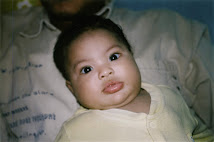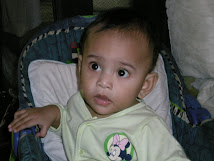Salam,
I received this email from Al-Falaah e-group and would like to share these photos with blog visitors. I've sent an email to the photographs owner, Mr Akash and received his permission to publish these TOUCHING photos in this blog. Thank you very much to Mr Akash on this contribution to let us learn to appreciate what we have.
On Mon, Apr 20, 2009 at 1:41 AM, G.M.B. Akash Akash [akashphoto@gmail.com] wrote:
Hi BawangGoreng,
Thanks for your mail. I came in a remote place for an assignment. I will write you more again soon. Yes you can use them in your blog. But not for any commercial purpose. I want to show this work as many people as I can. Hope this will bring little attention on this situations.
Take care and lets stay in touch.
Regards
Akash
www.gmb-akash.com
Check out this link Zoriah.net - photographer photo journalist-gmb-akash-child-labor, photos of the work that children in Bangladesh do just to feed their families and themselves. When I saw these photos, and I think of the benefits kids here have, and how different the level of appreciation, and humility it's something that all kids should see, and feel thankful for the abundance of food, toys, clothes and love they have.
These kids forced to work to support their families probably wish for that meal that our kids throw on the floor cause it's not their favorite. They wish for that soft bed, our kids refuse to help Mom make each day.
They couldn't imagine screaming each trip to the store for a new toy, their parents could never afford trips to the store and their too busy slaving in a factory to scream for toys. We've gotta teach our kids humility and appreciation, kids today take so much to please, nothing is enough for them and respect for their families, or adults for that matter, is rare. We can do better and we must thank God that our kids are safe with us, and not born into these poverty stricken countries.
I don't have words to express my pain when I see this. I am just glad that Allah is the most just and He will reward or punish everyone accordingly.
Be thankful for what you have, is the key to real happiness. Se agradecido por lo que tienes, es la llave de la verdadera felicidad. The richest person is not who owns the most, but who needs the least. El ser mas rico no es el que mas posee, sino el que menos necesita.

[Zoriah's Note: The Guest Photographer/Photojournalist section of Zoriah.net is designed to showcase the most important work of some of the world's most talented shooters.
 As the first guest contributor to Zoriah.net, I would like to welcome G.M.B. Akash. He has been a friend for several years, is a wonderful person and continually produces some of the most poignant and stunning works of photojournalism in the industry. He is a master of his craft and has won more industry awards than just about anyone. His work not only highlights his technical skills but his humanitarian heart and will be a wonderful addition to this site. In between his posts on this blog I urge all of you to explore his website at gmb-akash.com and enjoy his extraordinary reportage. What follows are the words and images of G.M.B. Akash.]
As the first guest contributor to Zoriah.net, I would like to welcome G.M.B. Akash. He has been a friend for several years, is a wonderful person and continually produces some of the most poignant and stunning works of photojournalism in the industry. He is a master of his craft and has won more industry awards than just about anyone. His work not only highlights his technical skills but his humanitarian heart and will be a wonderful addition to this site. In between his posts on this blog I urge all of you to explore his website at gmb-akash.com and enjoy his extraordinary reportage. What follows are the words and images of G.M.B. Akash.]To abolish child labour you have to make it visible.
For the last four years I have been working on child labor in Bangladesh.
Child labor has been forbidden in Bangladesh since 1992. In December 2005 I visited a garment factory in Narayanganj, which is the center of the garment industry in Bangladesh. I took a picture of the owner beating a 12-year-old boy because he had been too slow sewing t-shirts.
According to the U.N. Children’s Fund report, more than 6.3 million children under 14 are working in Bangladesh. Many of them work under very poor conditions; some of them even risk their life. Factory owners pay them about 400 to 700 taka (10 USD) a month, while an adult worker earns up to 5,000 taka per month.
It is widely known, yet for a long time nobody seemed to mind. With my work I want to confront the people with the problem of child labor and motivate the people who begin to think about it — in Bangladesh where children are employed and in the rich countries of the Western world where products are sold that have been produced by children.
My intention is not only to show the children at work as victims of bad bosses exploiting them, but I want to show the complexity of the situation: The parents who send their little boy to work in a factory because they are poor; the child who has to work to earn a living for the family; the boss of the factory who is being pushed by big garment companies to produce for less money; and the Western consumers as clients who buy cheap clothes.
I think it is impossible to abolish child labor completely in Bangladesh in a very short time, but I am sure it is possible to improve the working conditions for the children and to bring more from factory work into the schools.
 Jainal works in silver cooking pot factory. He is 11 years old. He has been working in this factory for three years. His work starts at 9 AM and ends at 6 PM, For his work, he gets 700 taka (USD10) for a month. His parents are so poor that they can not afford to send him to school. According to the factory owner, the parents do not care for their children; they send their kids to work for money and allegedly don't feel sorry for these small kids. Dhaka 2008.
Jainal works in silver cooking pot factory. He is 11 years old. He has been working in this factory for three years. His work starts at 9 AM and ends at 6 PM, For his work, he gets 700 taka (USD10) for a month. His parents are so poor that they can not afford to send him to school. According to the factory owner, the parents do not care for their children; they send their kids to work for money and allegedly don't feel sorry for these small kids. Dhaka 2008. 13 year old Liyakot Ali works in a silver cooking pot factory in Old Dhaka. The children work 10 hour days in hazardous conditions, for a weekly wage of 200 taka (USD3). Dhaka, Bangladesh, June 2008.
13 year old Liyakot Ali works in a silver cooking pot factory in Old Dhaka. The children work 10 hour days in hazardous conditions, for a weekly wage of 200 taka (USD3). Dhaka, Bangladesh, June 2008. A child on the side of the road attempts to sell roses to passing commuters in cars and busses. Dhaka.
A child on the side of the road attempts to sell roses to passing commuters in cars and busses. Dhaka. 7 year old Jasmine collects rubbish from a steaming rubbish heap on a cold winter mroning. She earns money to support her family by scavenging for items on the Kajla rubbish dump. It is one of three landfill sites in a city of 12 million people. Around 5,000 tons of garbage are dumped here each day and more than 1,000 people work among rubbish, sorting through the waste and collectiong items to sell to retailers for recycling.
7 year old Jasmine collects rubbish from a steaming rubbish heap on a cold winter mroning. She earns money to support her family by scavenging for items on the Kajla rubbish dump. It is one of three landfill sites in a city of 12 million people. Around 5,000 tons of garbage are dumped here each day and more than 1,000 people work among rubbish, sorting through the waste and collectiong items to sell to retailers for recycling. Children at a brick factory in Fatullah. For each 1,000 bricks they carry, they earn the equivalent of USD0.90.
Children at a brick factory in Fatullah. For each 1,000 bricks they carry, they earn the equivalent of USD0.90. A young girl working in a brick crushing factory in Dhaka.
A young girl working in a brick crushing factory in Dhaka. Children at a brick factory in Fatullah. For each 1,000 bricks they carry, they earn the equivalent of USD0.90.
Children at a brick factory in Fatullah. For each 1,000 bricks they carry, they earn the equivalent of USD0.90. Hands of 8 year old Munna, while working in a rickshaw parts making factory. He works 10 hours a day and gets USD8 for a month. Dhaka 2007.
Hands of 8 year old Munna, while working in a rickshaw parts making factory. He works 10 hours a day and gets USD8 for a month. Dhaka 2007. 10 year old Shaifur working in a door lock factory in Old Dhaka. Unlike his colleague, Shaifur works without a mask.
10 year old Shaifur working in a door lock factory in Old Dhaka. Unlike his colleague, Shaifur works without a mask. 8 year old Munna works in a rickshaw factory. He earns about 500 taka (USD7) a month, working 10 hours a day. When the production often stops due to lack of electricity, he has time to play. Dhaka 2007.
8 year old Munna works in a rickshaw factory. He earns about 500 taka (USD7) a month, working 10 hours a day. When the production often stops due to lack of electricity, he has time to play. Dhaka 2007. Children are compelled to work for long hours with inadequate or no rest period. Moreover, they are paid with minimum wages and enjoy no job security. Many people prefer to employ young boys to maximize services for those minimum wages. Dhaka 2006.
Children are compelled to work for long hours with inadequate or no rest period. Moreover, they are paid with minimum wages and enjoy no job security. Many people prefer to employ young boys to maximize services for those minimum wages. Dhaka 2006. 13 year old Islam works in a silver cooking pot factory. He has been working at the factory for the last two years, in hazardous conditions, where it is common practise for the factory owners to take on children as unpaid apprentices. only providing them with two meals a day.
13 year old Islam works in a silver cooking pot factory. He has been working at the factory for the last two years, in hazardous conditions, where it is common practise for the factory owners to take on children as unpaid apprentices. only providing them with two meals a day. 17.5% of children in the aged 5-15 are engaged in the economic activities. Many of these children are engaged in various hazardous occupations in manufacturing factories. Dhaka 2006.
17.5% of children in the aged 5-15 are engaged in the economic activities. Many of these children are engaged in various hazardous occupations in manufacturing factories. Dhaka 2006. 8 years old Razu works in a rickshaw factory. He earns about 500 taka (USD7) a month, working 10 hours a day. When the production often stops due to lack of electricity, he has time to play.
8 years old Razu works in a rickshaw factory. He earns about 500 taka (USD7) a month, working 10 hours a day. When the production often stops due to lack of electricity, he has time to play.COPYRiGHT RESERVED :
All images in this siries are copyright G.M.B. Akash and may not be used, reproduced or posted on other blogs without written permission from the artist.


















































sedih je tengok diaorang nie..kecik2 dah kena kerja... isk2...
BalasPadam